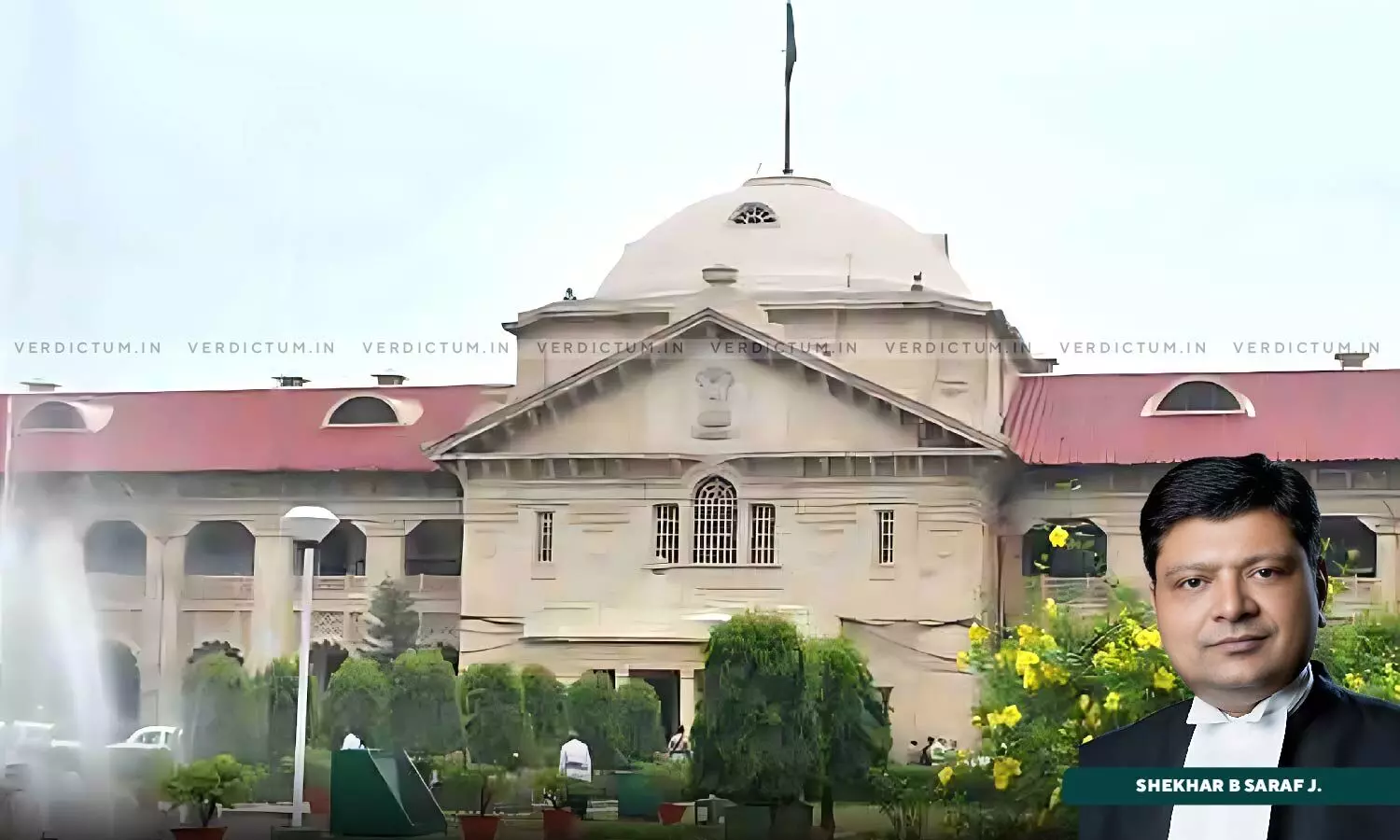
Collector(Stamp) Cannot Recall Or Review His Order Under Section 47-A Indian Stamp Act: Allahabad HC
 |
|The Allahabad High Court observed that the Collector (Stamp) cannot recall and/or review his order as no such power has been conferred under Section 47-A of the Indian Stamp Act, 1899.
The Court was hearing a Writ Petition assailing the order passed by the Collector (Stamp), on the ground that he lacks the power to recall or review an order by him under Section 47-A of the 1899 Act.
The bench of Justice Shekhar B. Saraf observed, “it is clear that the Collector (Stamp) cannot recall and/or review his own order as no such power has been conferred under Section 47-A of the Act.”
Brief Facts-
The petitioners including Shivani Chaurasia bought agricultural land. The sale deed was registered, but later, a deficiency in stamp duty and registration fee was pointed out. After negotiations, they paid the required amount to avoid penalties. However, a complaint led to a second notice from the Collector. They objected to the notice stating that the first order was final. Nonetheless, a new order was issued. Hence prompting the filing of this Writ Petition.
After perusing the 47-A of the Stamp Act the Court noted that the Collector (Stamp) who acts as a quasi-judicial authority possesses no power, inherent or statutory, to recall/review an order passed under the said section.
The Court mentioned the decision in Milap Chandra Jain vs. the State of U.P. and others reported in 1988 All. L.J. 1078 and quoted, “…The powers exercisable by the Collector under S. 47-A are unarguably quasi judicial in nature. There is a procedure laid down for the determination of the valuation which clearly affects the rights of the person who is called upon to pay additional stamp duty in case the adjudication goes against him. That being so, an adjudication made by the Collector under S. 47-A of the Stamp Act could not be disturbed or reopened unless there is an express provision in the enactment conferring power of review by the authority making that order. It is settled law that the power of review on merits is not an inherent power.”
The Court said that a quasi-judicial authority is limited in its functionality as much as it has to act within the four corners of the statute from which it derives its authority. According to the Court, if the statute does not provide for a particular act, the same cannot be undertaken by that authority as any such action taken dehors the legislative intent would amount to an overreach and beyond the power of the said authority.
The Court while explaining the distinction between the constitutional Courts and quasi-judicial Courts observed, “The distinction between constitutional courts and quasi-judicial authorities is significant, particularly when it comes to the exercise of review or recall powers. Constitutional courts, being courts of record under the Constitution, enjoy inherent powers to review their own orders and correct errors in the interest of justice. This inherent power is derived from the constitutional mandate and is essential for maintaining judicial independence and upholding the rule of law. In contrast, quasi-judicial authorities lack inherent powers and can only exercise those powers which have been expressly conferred upon them by the statutes from which they derive their jurisdiction.”
“The absence of inherent powers means that quasi-judicial authorities cannot arbitrarily review or recall their orders unless such power is specifically conferred upon them by their governing statute.”, the Court added.
Finally, the Court quashed and set aside the order and allowed the Writ Petition.
Cause Title: Shivani Chaurasia v. State of U.P. (Neutral Citation: 2024:AHC:89181)
Appearance:
Appellant: Adv. Sanjay Goswami
Respondent: Standing Counsel Siddhartha Singh